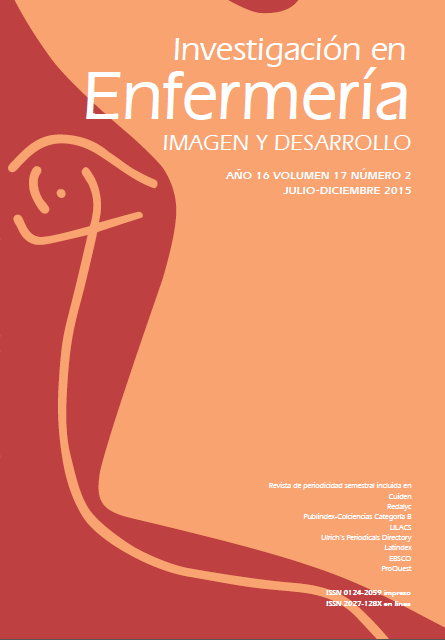Abstract
Introduction: studying the problems of people living in displacement is today a national priority due to the fact that it is topical. Objective: To obtain information in the locality of Suba, Bogotá, about displaced population, which is comprised by people of different ages and gender, representing different ethnic groups and different races. Methodology: The sample selection was made through a non-probability sampling. The sample consisted of 32 families convened by the Foundation Salud, Familia y Comunidad. People in displacement conditions were surveyed in order to know previous and current conditions. Results: The families chosen for this study were supported by the Unit of Attention and Orientation to the displaced population, UAO Suba. Its main feature was to be people living in forced displacement from the province colombiana. Conclusions: always significant proportion of people living in displacement of this study are from the Colombian Pacific, the main cause of displacement, armed conflict; In this study we found that most of the group wants to settle in the capital, due to the circumstances of violence experienced prior to displacement. Utility conditions found in the city and attract their stay, the group that wants to stay, aspiring to improve their overcrowded, and have a better quality of life.
The journal Investigación en Enfermería: Imagen y Desarrollo is registered under a Creative Commons Attribution 4.0 International Public License. Thus, this work may be reproduced, distributed, and publicly shared in digital format, as long as the names of the authors and Pontificia Universidad Javeriana are acknowledged. Others are allowed to quote, adapt, transform, auto-archive, republish, and create based on this material, for any purpose (even commercial ones), provided the authorship is duly acknowledged, a link to the original work is provided, and it is specified if changes have been made. Pontificia Universidad Javeriana does not hold the rights of published works and the authors are solely responsible for the contents of their works; they keep the moral, intellectual, privacy, and publicity rights.
Approving the intervention of the work (review, copy-editing, translation, layout) and the following outreach, are granted through an use license and not through an assignment of rights. This means the journal and Pontificia Universidad Javeriana cannot be held responsible for any ethical malpractice by the authors. As a consequence of the protection granted by the use license, the journal is not required to publish recantations or modify information already published, unless the errata stems from the editorial management process. Publishing contents in this journal does not generate royalties for contributors.


